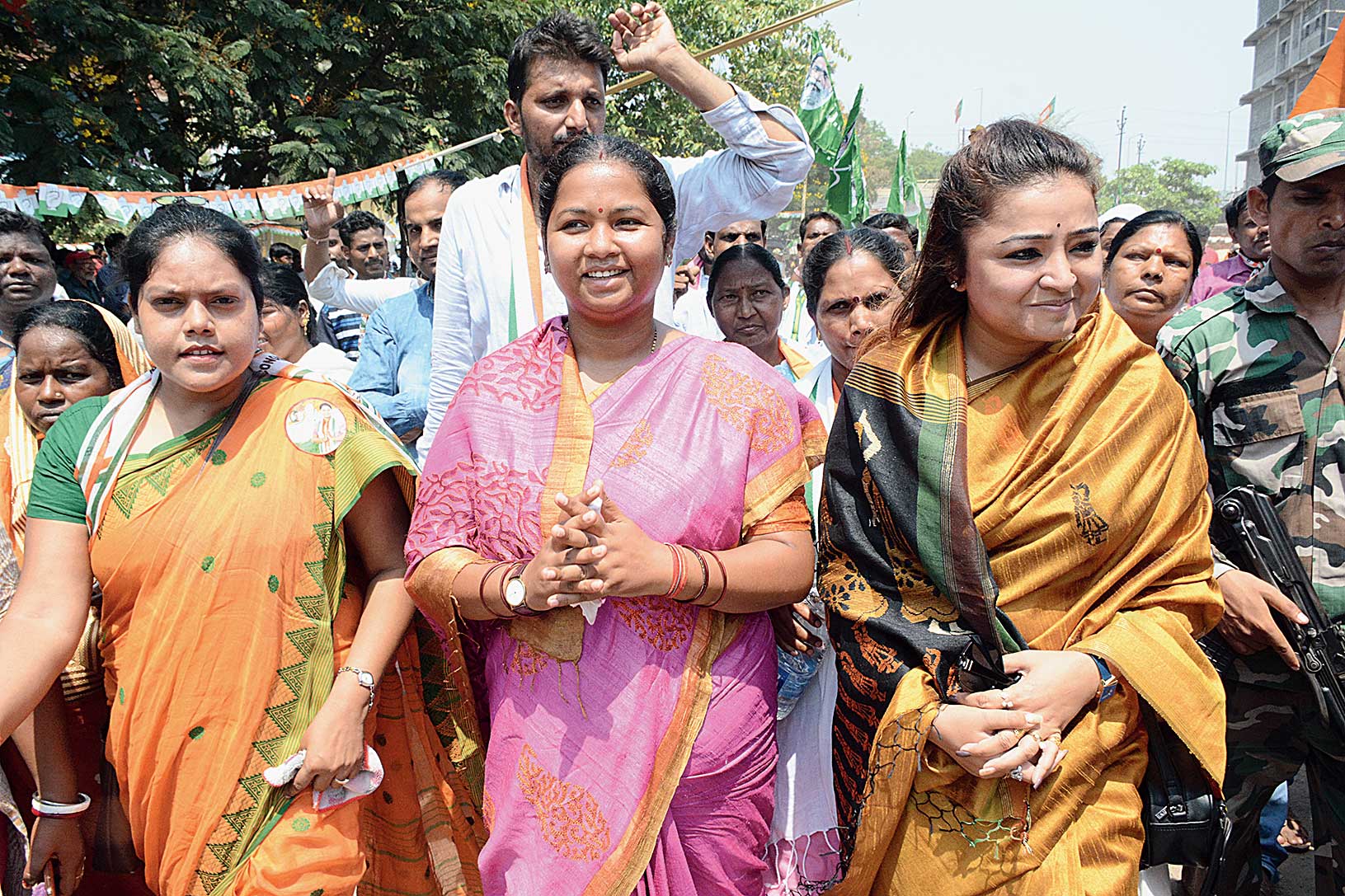Gas stoves and drinking water over surgical strikes? Wooing the ma-bahu-beti voters is important for all parties this general elections.
Women voters in Jharkhand are around 1.04 crore or 47.65 per cent of the electorate. And trends show that younger women, even in the rural belts, independently make up their minds on who to vote for instead of obeying family and community diktats.
Moving beyond mega rallies, roadshows and social media campaigns, women’s wings of political parties are meeting up “mothers and sisters”.
The BJP women’s wing is banking on scheme’s such as Jan Dhan Yojana, Ujjwala Yojana, Pradhan Mantri Awas Yojana and Ayushman Bharat. They are also helping women get voter ID cards.
“We don’t talk surgical strikes and international politics when we meet women, we talk about homes, gas cylinders, health cards, topics they identify with,” Reeta Mishra, BJP state general secretary (women’s wing), said, adding they were targeting 5,000 households per constituency.
JMM women’s wing raised the issue of school merger — introduced by the BJP government to rationalise resources but ended up closing many village primary and middle schools within walking distance — that made it tough for many children and their parents. “This government talks about Beti Bachao Beti Padhao but the thoughtless merger of schools hindered that,” said JMM worker and East Singhbhum zilla parishad member Hiramani Murmu. “Rural women don’t understand national issues, they worry about their children’s future.”
State Congress women’s wing president Gunjan Singh felt women campaigned “a lot better than men”. “Congress women wing members are carrying our party’s poll manifesto to explain it to voters in both rural and urban areas,” she said. “We are speaking of failed decisions like demonetisation and GST, the lack of women’s safety.”










